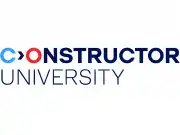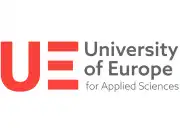Computer science and IT programs in Germany
- Overview of Computer science and IT programs in Germany
- Features of Computer science and IT programs in Germany
- Advantages of Computer science and IT programs in Germany
- Disadvantages of Computer Science and IT Programs in Germany
- German universities offering Computer science and IT programs
- Admission requirements for Computer science and IT programs
- Documents required for admission to Computer science and IT programs in Germany
- Tuition fees for Computer science and IT programs in Germany
- Scholarships and grants for Computer science and IT programs in Germany
- Career prospects after Computer science and IT programs in Germany
- Is it worth studying Computer science and IT programs in Germany?
- Frequently Asked Questions

Bachelor of Science - Computer Science
Constructor University - Bremen, GermanyComputer Science is at the center of many modern industries, as computer systems and IT underpin practically all manufacturing processes.
Computer technology develops quickly, yet there are underlying fundamentals. Constructor University's Computer Science curriculum focuses on applying…

Bachelor of Science - Data Science, AI and Digital Business
GISMA Business SchoolLearn the ins and outs of AI by becoming a data science specialist and gaining expertise in analytics, data visualization, and data governance. The program's emphasis on broad business knowledge should help you land a job.
Studying at the Potsdam campus of Gisma University of Applied Sciences,…

Master of Science - Computer Science and Software Engineering
Constructor University - Bremen, GermanySchaffhausen Institute of Technology (SIT) and Constructor University Bremen jointly provide a Master of Science in Computer Science and Software Engineering (MSc CSSE) program that combines a research-driven approach, a strong academic atmosphere, and direct linkages to the corporate sector.
The…

Master of Science - Advanced Software Technology
Constructor University - Bremen, GermanyComprehensive instruction in advanced computing paradigms, data-driven analysis, and software development is offered via the Master's Program in Advanced Software Technology, which was established in partnership with JetBrains.
The goal of this curriculum is to give students strong skills…

Bachelor of Science - Software Engineering
University of Europe for Applied Sciences - GermanyStudents develop solutions and computer programs for 2D and 3D game interaction. They'll work with other programmers and game artists to create a commercially viable game prototype.
Students in this software engineering program learn about current challenges and solutions in software design…

Bachelor of Science - Digital Business and Data Science
University of Europe for Applied Sciences - GermanyRapid change and globalization make ecosystems more valuable.
Understanding future social, educational, and cultural changes, as well as digital business transformation and e-government model optimization, requires studying the digital technology revolution as a driving force.
The…

Bachelor of Science - Digital Media and Marketing
University of Europe for Applied Sciences - GermanyMedia and marketing managers shape future trends like blockchain, VR, and AI.
UE has designed a degree to help students become visionary leaders in these areas, as well as big data, the Internet of Things, transnational PR, voice marketing, and programmatic advertising.
Our graduates…

Master of Science - Data Science for Society and Business
Constructor University - Bremen, GermanyData Science for Society and Business (DSSB) is a 2-year master's degree for business and social science students interested in data science. The curriculum is also appealing to health and environmental science majors who want to extend into big data analytics, data-driven, and computational social…

Master of Science - Data Engineering
Constructor University - Bremen, GermanyThe graduate program in Data Engineering provides an interesting and in-depth look at the approaches and technology used in this rapidly increasing field.
The curriculum integrates big data features of "Data Analytics" and "Data Science" with the technological problems of data collecting,…

Bachelor of Science - Computer Science
GISMA Business SchoolOur four-year Bachelor of Science in Computer Science degree will train you to analyze and design computer-based systems for the next wave of innovation. The topics we'll be looking at in this course include the fundamentals of computing, algorithmic reasoning, system design, problem solving, AI,…
Overview of Computer science and IT programs in Germany
Computer science and IT programs in Germany are becoming increasingly popular among international students due to high teaching standards, affordable tuition fees, and excellent career prospects. Germany is actively investing in the development of its digital economy, which means it's training specialists who are in demand both in Europe and beyond.
International students can choose to study in English or German at public and private universities. The programs cover a wide range of topics - from basic programming to artificial intelligence, data analysis, information security, and robotics.
Features of Computer science and IT programs in Germany
German universities offer modern and flexible educational programs adapted to industry requirements. Key features:
- Dual orientation - combining academic and applied training;
- Innovative fields - machine learning, Big Data, Internet of Things;
- Access to equipment - modern laboratories and research centers;
- Academic mobility - opportunity to study abroad in other EU countries;
- Startup support - universities collaborate with incubators and venture funds.
Fachhochschule (Universities of Applied Sciences) are of particular interest, where education is closely aligned with employer requirements.
Advantages of Computer science and IT programs in Germany
IT education in Germany has numerous advantages:
- Internationally recognized degrees;
- Low tuition fees even for international students;
- Developed digital infrastructure and research projects;
- Wide selection of programs in English - master's and some bachelor's degrees;
- Employment and internship opportunities during studies;
- High teaching standards and flexible learning formats - online, hybrid courses, evening classes.
Disadvantages of Computer Science and IT Programs in Germany
Potential challenges:
- Language adaptation - daily life requires knowledge of German.
- Complex bureaucratic system - visas, registration, residence permits.
- Academic workload - especially in technical fields.
- Housing shortage in large cities - high competition for dormitories.
How to overcome them:
- Learn German in advance - at least to A2-B1 level;
- Use help from university international offices (International Office);
- Start housing search and document preparation at least 6 months before the program begins;
- Participate in study groups and consult with tutors.
German universities offering Computer science and IT programs
Below is a list of leading universities where you can study computer science in Germany:
| University | City | Language of Instruction | Type |
|---|---|---|---|
| Technische Universität München (TUM) | Munich | German/English | Public |
| RWTH Aachen University | Aachen | English | Public |
| Universität Stuttgart | Stuttgart | English | Public |
| Hochschule Bonn-Rhein-Sieg | Sieg | English | Applied Sciences |
| SRH Berlin University of Applied Sciences | Berlin | English | Private |
| CODE University of Applied Sciences | Berlin | English | Private |
| IU International University of Applied Sciences | Berlin, online | English | Private |
Note: Private universities often have more flexible admission requirements and offer online formats, but require higher tuition fees.
Admission requirements for Computer science and IT programs
Bachelor's degree:
- High school diploma;
- Language proficiency: TestDaF / DSH (for German-taught programs), IELTS / TOEFL (for English-taught);
- Sometimes - motivation letter and entrance exams.
Master's degree:
- Bachelor's degree in IT or related field;
- IELTS (from 6.5), TOEFL (from 80), or TestDaF certificates;
- CV and recommendations;
- Motivation letter, portfolio (if required).
Documents required for admission to Computer science and IT programs in Germany
- Certified translation of diploma/certificate;
- Language certificate;
- Passport;
- CV;
- Motivation letter;
- 1–2 recommendation letters (more common for master's programs);
- Proof of financial means (blocked account - minimum €11,208 per year);
- Photos, completed forms, visa documents.
Tuition fees for Computer science and IT programs in Germany
Public universities:
Most public universities offer free education, only semester fees apply:
- TU München — €147/semester;
- RWTH Aachen — €300/semester;
- KIT — €153/semester.
Exception - Baden-Württemberg state, where non-EU students pay €1,500 per semester.
Private universities:
Private universities set their own tuition fees:
| University | Annual Cost (approximate) |
|---|---|
| IU International University | from €4,000 to €12,000 |
| SRH Berlin | from €9,000 to €13,000 |
| CODE University of Applied Sciences | about €9,800 per year |
Private universities often offer installment plans or internal scholarships.
Scholarships and grants for Computer science and IT programs in Germany
International students can apply for various scholarships:
- DAAD - most famous scholarship program, covers tuition and living expenses (€850–€1,200/month);
- Deutschlandstipendium - €300/month, based on academic performance;
- Erasmus+ - up to €500/month + travel expenses;
- University scholarships - private universities often offer 10–50% discounts depending on academic performance and income;
- Women in IT support programs - available at some universities (e.g., Hasso Plattner Institute).
Career prospects after Computer science and IT programs in Germany
Demand
Germany is one of the few European countries where demand for IT specialists exceeds supply. According to Bitkom, there were over 137,000 open positions in digital technologies in 2024.
Popular fields:
- Frontend and Backend development
- Data Science and Big Data
- Cybersecurity
- Artificial Intelligence
- DevOps
- Network technologies
Salary levels:
| Experience Level | Average Annual Salary (gross) |
|---|---|
| Graduate / Junior | €45,000 – €55,000 |
| Middle specialist | €60,000 – €75,000 |
| Senior / Team Lead | €80,000 – €100,000+ |
Employment prospects:
- International students can stay in Germany for up to 18 months after graduation to find a job.
- Many students complete paid internships or work part-time in IT companies during their studies.
- Graduates from private universities also actively enter the job market thanks to career offices and networking opportunities.
Is it worth studying Computer science and IT programs in Germany?
Undoubtedly, studying in Germany is an investment in the future, especially in such a promising field as IT.
Here are several reasons to consider this path:
- Germany is a leader in digital transformation in Europe;
- Affordable education, even in international programs;
- Real chances for successful career after graduation;
- Support for international students, including adaptation, German language courses, career counseling;
- Flexible formats and modern education focused on real business needs.
For those willing to invest in their development, learn languages, and face challenges - Germany offers a unique educational and career experience.
Frequently Asked Questions
- Can I study IT programs in Germany in English?
Yes. Many master's programs and some bachelor's programs are available in English. - Is Studienkolleg preparation mandatory?
Only if your school certificate doesn't meet German university requirements. For students with 1-2 years of university study - direct admission may be possible. - Which is better: private or public university?
Public - cheaper and more prestigious, private - more flexible and faster to adapt to market needs. Depends on your goals. - Should I apply for scholarships in advance?
Yes, 6-12 months before the program starts. - Is it realistic to stay and work in Germany after graduation?
Yes, Germany is interested in qualified IT specialists and offers visa extensions for job search.